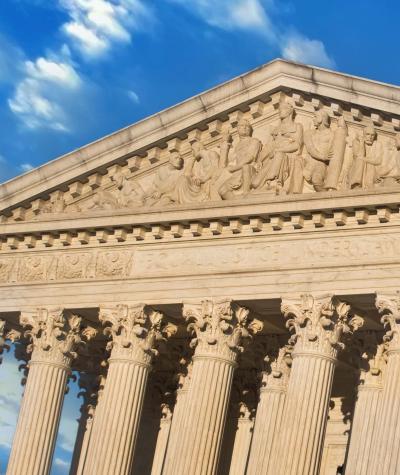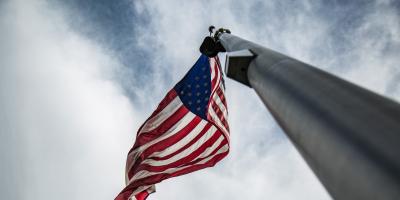All voters should be able to invoke the protections of the Voting Rights Act (VRA), an important federal law that bans racial discrimination in voting.
These protections should extend to all Americans, regardless of the state they live in — and thanks to efforts by Campaign Legal Center (CLC) and our partners, on behalf of our clients, the U.S. Supreme Court temporarily paused a discriminatory ruling that came out of the Eighth Circuit Court of Appeals.
In a case initially brought in 2022 by Native voters, the Spirit Lake Nation (Mni Wakan Oyate) and Turtle Mountain Band of Chippewa Indians against North Dakota’s discriminatory maps, CLC and our co-counsel, Native American Rights Fund (NARF) argued that state legislative maps illegally diluted the voting power of Native Americans in the state.
Learn more about the history of this case here.
Despite the district court’s ruling that the map was discriminatory, on appeal the Eighth Circuit decided that private plaintiffs — which can be individuals, nonprofit groups, civic organizations or other groups — cannot use Section 1983 of the Civil Rights Act/Klan Act of 1871 to enforce Section 2 of the VRA.
This reinforces an earlier decision by the Eighth Circuit that ruled private individuals cannot file suit under Section 2 of the VRA by themselves.
This means that if a discriminatory map or voting law is enacted, voters would not be able to challenge it in Arkansas, Iowa, Minnesota, Missouri, Nebraska, North Dakota or South Dakota, essentially stripping them of their right to fight against racial discrimination.
Following this stunningly undemocratic move, CLC and our partners asked the entire Eighth Circuit to review the case. We argued that, if the ruling were to stand, millions of voters across the seven states under the Eighth Circuit’s jurisdiction could be harmed by racially discriminatory maps and voting laws, robbing them of fair representation.
But the Eighth Circuit refused to rehear the case. If that ruling were to stand, only the Department of Justice (DOJ) could sue to enforce Section 2 in those states. Since the DOJ has dropped all previously pending cases filed under Section 2, voters themselves must be able to hold their government accountable if it enacts unfair voting maps.
So, Campaign Legal Center and our partners brought this case to the Supreme Court, and the Supreme Court paused the Eighth Circuit’s unprecedented ruling, leaving in place fair maps for Native American voters while the case progresses before the Supreme Court.
Now, Native voters in northeastern North Dakota can continue to vote under the fair maps they fought for. And the Supreme Court is poised to consider and reverse the Eighth Circuit’s damaging conclusion that voters in seven states cannot access the courthouse door to fight for fair maps and voting laws under the VRA.
To make this decision permanent, Campaign Legal Center will be filing a cert petition to formally request that the Supreme Court hear this case during their next term. Support us as we continue to litigate this case, because every American deserves fair representation.


